Dergi Kurulları
On Behalf of Dokuz Eylül University Faculty of Letters, Department of Archaeology, Owner
Chief editor

Editorial Committee
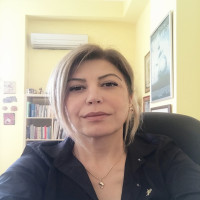
 Türkiye
Türkiye
Advisory Board Member - Yedi Journal

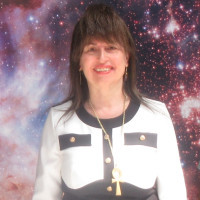
Alicia MARAVELIA: Although a recognized Egyptologist (PhD in the University of Limoges, 2004) and Astronomer (PhD in the University of Athens, 1997), with an initial BSc in Physics (University of Thessaloniki, 1988), Founder and Director of the Hellenic Institute of Egyptology, Co-Ordinator of three Research Projects and prolific author of more than 150 papers, books and reviews, she is also very fond of Music and the History of Music. She has studied Byzantine Music in Thessaloniki and Athens and wrote a book of Propria ( Akolouthia ) to honor the memory of Saint Alice/Alexandra of Russia (the Passion-Bearer). She specializes in the enharmonion genos of the Oktoechos and is very interested between the relations and interactions of the Arabic and Ottoman Maqam with the various modes ( echoi ) of Byzantine Music.
Christoforos Arampatzis, Yunanistan Kültür Bakanlığı'nda görev yapan bir arkeolog ve müzecidir. Arkeoloji ve müzecilik eğitimini Yunanistan ve İsviçre’de almıştır. Güneydoğu Avrupa’daki Neolitik Dönem ve tarihöncesi göl kenarı yerleşimleri üzerine atölye çalışmaları ve oturumlar düzenlemiştir. Neolitik dönemde avcılık ve balıkçılık üzerine ortak editörlüğünü yaptığı bir kitap yayımlamış, ayrıca tarihöncesi kemik alet endüstrileri ve süs eşyaları üzerine derleme kitaplar ve akademik dergilerde makaleler yayımlamıştır.
 İtalya
Web
İtalya
Web
Roberto Dan is an archaeologist who earned his Ph.D. from the “Sapienza” University of Rome in 2012 with a dissertation on the Urartian civilization. He specializes in the archaeology of the Southern Caucasus, Iran, and Turkey, and has conducted fieldwork in Armenia, Georgia, Iran, and Turkey. Since 2013, he has served as co-director of the ISMEO Archaeological Mission in the South Caucasus. In 2019, he was awarded the Europa Nostra Award / European Heritage Award in the ‘Research’ category (together with A. Petrosyan) for the project on the discovery, investigation, and enhancement of the site of Solak-1. He is the author of three monographs and the editor of seven volumes, and he co-founded the series Studia Hethitica, Hurritica et Urartaica. He has published more than 200 scientific articles, most of which appear in peer-reviewed journals. His research spans from Protohistory to Late Antiquity, with a primary focus on Urartu and the Achaemenid period.
Lee Fratantuono is a classical philologist and ancient historian.
https://orcid.org/0000-0002-9057-7510
Born in Barcelona in 1980, he studied Prehistory, Archaeology and Ancient History at the Universitat de Lleida (1999-2004) and completed his training at the Università degli Studi di Roma 'La Sapienza' (2002-2003). In 2003 he obtained the degree of Magister Artium at the Universitat de Lleida, where he also completed his doctoral thesis (2006-2009) with an extraordinary doctoral prize.
During his doctorate he benefited from a BE mobility grant at the EPHE in Paris, and after his doctorate he enjoyed a postdoctoral fellowship from the Alexander von Humboldt Foundation (2010-2012) at the Römisch-Germanisches Zentralmuseum in Mainz, where he continued to work on projects until joining the University of Alicante with a Ramón y Cajal contract (2020). During these years in Mainz, he has been invited as visiting professor to the Université de Toulouse II (2018), Salerno (2019) and Alicante (2018 and 2019).
His career has been recognised by the DAI with his election as Corresponding Member of the German Archaeological Institute in 2018 and by the Istituto di Studi Etruschi ed Iitalici in 2024. He was also awarded the XVIII L'Erma di Bretschneider Prize in 2018.
His fields of research have several axes: 1) the study of the metallic material culture of the Mediterranean Area during the first millennium BC; 2) the funerary record of the western Mediterranean; 3) Mediterranean defensive weaponry, with a preference for helmets and cuirasses; 4) Mercenaries in the Mediterranean; 5) Offering and deposition of weapons in sanctuaries and funerary contexts throughout the Mediterranean, the celebration of victory and the offering of weapons in Greek and Hellenistic sanctuaries; 6) finally, the recovery of heritage and the study of collections.
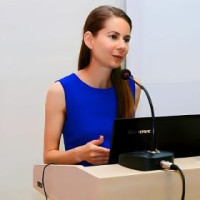

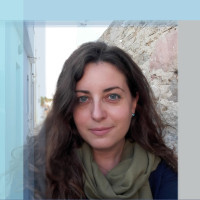
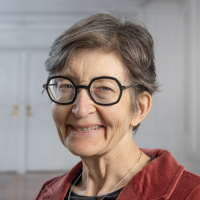
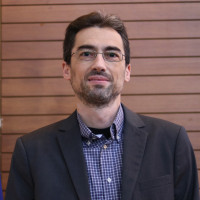
Manolis Manoledakis is Professor of Classical Archaeology at the International Hellenic University in Thessaloniki. He has also taught at the University of Ioannina, the Democritus University of Thrace and the Hellenic Open University. He has participated in various research programmes and is the director of the International Hellenic University’s excavation in Neo Rysio, Thessaloniki. His research work and teaching activity concentrate on the archaeology and ancient history of the Black Sea as well as central Macedonia, the ancient topography and geography of these areas, ancient Greek religion, Greek mythology in its historical context, and ancient Greek painting and vase-painting. He is the director of the two post-graduate programmes of the International Hellenic University’s School of Humanities, the MA in Black Sea and Eastern Mediterranean Studies and the MA in the Classical Archaeology and the Ancient History of Macedonia.
Section editor
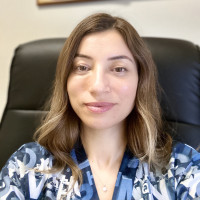


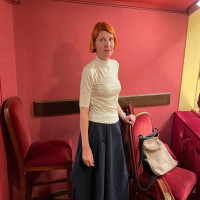
Amra Šačić Beća was born in 1986 in Sarajevo where she completed primary and secondary education. She received her BA and MA degrees from the History Department at the Faculty of Philosophy at the University of Sarajevo. She defended her Ph.D. thesis entitled Administrative Organization of Today`s Bosnia and Herzegovina during the Early Roman Empire (I - III century) in 2016 at the History Department (Roman provincial history and epigraphy) at the Faculty of Philosophy of the University of Ljubljana. She was a stipend of the CEEPUS program during which she was a visiting student at the Juraj Dobrila University of Pula and the University of Zagreb. She works as an assistant professor in the History Department (Ancient History) at the Faculty of Philosophy at the University of Sarajevo. She is a module coordinator in Bosnia and Herzegovina during the Antiquity and History of the Illyrians and Roman provinces in Southeast Europe. She also teaches courses in History of Old Greece and Epigraphy at the Archaeology Department at the Faculty of Philosophy at the University of Sarajevo. She is the author of numerous papers on the topic of Roman provincial history and Latin epigraphy, she co-authored two books and authored one book. Her papers are cited in epigraphy databases such as Epigraphische Datenbank Clauss, Ubi Erat Lupa, and Trismegistos (part of EU-project EAGLE – Europeana network of Ancient Greek and Latin Epigraphy). She is a member of the editorial boards of two journals Radovi Filozofskog fakulteta u Sarajevu (Journal of the Faculty of Philosophy in Sarajevo), and Radovi Zavičajnog muzeja – Visoko (Papers of the Heritage Museum – Visoko). She is the Executive Editor-in-Chief of Acta Illyrica Journal. In 2018, she was the Editor-in-Chief of the special edition of Acta Illyrica Journal dedicated to Esad Pašalić, one of the founders of classical archaeology in Bosnia and Herzegovina. She reviewed several monographs on the ancient history of authors from Southeast Europe and participated in and organized several international conferences.
The co-authored two scholarly and popular reference books Ancient Heritage Guidebook for the City of Sarajevo and the Surroundings and Everything You Need to Know About the Oldest Heritage of Sarajevo. As the leader and member of research teams, she participated in European and local scholarly and research projects on ancient history, archaeology, and Latin epigraphy. She is currently involved in two international projects. As a member of the research team of the Croatian Academy of Sciences and Arts, with colleagues from Croatia, Australia, and Albania, she is working on the project Among Gods and Men – The Cults and the Population of Roman Dalmatia According to the Votive Inscriptions. She is also a member of a team working on the project Roman mines in Southeast Europe during the Principate. Under this project, she acts as the head of the Editorial Board for the volume to be published within the series South-East European History of the Swizz publisher Peter Lang under the auspices of the Balkan History Association (Bucharest, Romania). Since 2014, she has been a member of the Supervisory Board of the Association for the Study and Promotion of Illyrian Heritage, Ancient and Classical Civilizations BATHINVS and has been actively participating in all Association’s projects. She is a member of the Balkan History Association (Bucharest, Romania). She publishes papers in Bosnian and English.


